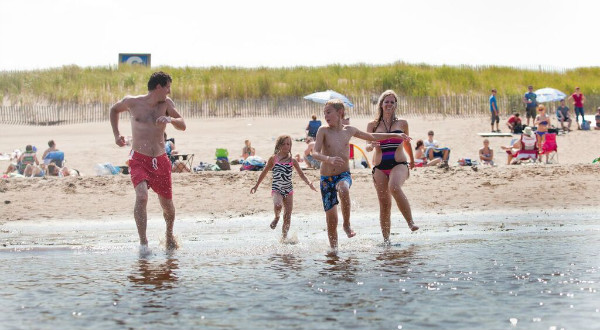
The group SWWAT (Save our Wetlands, Waters and Tourism), which is made up of volunteer residents living along the coast from Shediac to Port Elgin, has released its final report and recommendations on improving coastal protection and restoration in New Brunswick.
The final report and eight recommendations are an outcome of SWATT’s April 23, 2018 conference on Coastal Protection and Restoration in the Northumberland Strait, where the Conservation Council’s Executive Director, Lois Corbett, gave a presentation on integrated watershed protection and discussed the final Parlee Beach reports, which had been released by the provincial government three days prior.
Among the eight recommendations from the SWWAT report is one that the provincial government “delineates a clear regulatory and lawful enforcement regime which is based on established public policy objectives for water quality, protection of wetlands and buffers to sea-level rise.”
This recommendation echoes the Parlee Beach steering committee’s recommendation that the provincial government develop and implement a watershed protection plan for Shediac Bay, and be supported by legislation with legally-enforceable water quality standards.
The province and federal government have invested nearly $3 million to fix the decades-old sewage system, and the Department of Environment and Local Government is checking daily for high bacteria counts — all good things.
Like the Conservation Council, members of SWATT want new laws to protect the entire length of the Northumberland Strait to ensure our coastal waters and the environmental and economic benefits it provides to our fishing villages and tourism hotspot destinations are protected.
What will it take to finally turn the tide on coastal protection in N.B.?
It will take a comprehensive, science-based new law that protects entire watersheds including the coastline, floodplains and wetlands. We don’t have to look far to see examples of these comprehensive laws in action, for example, in New Hampshire, Massachusetts, and right next door in Maine.
As we near the provincial election, residents are looking for candidates who commit to bringing in smart new laws to protect the health of their water.

